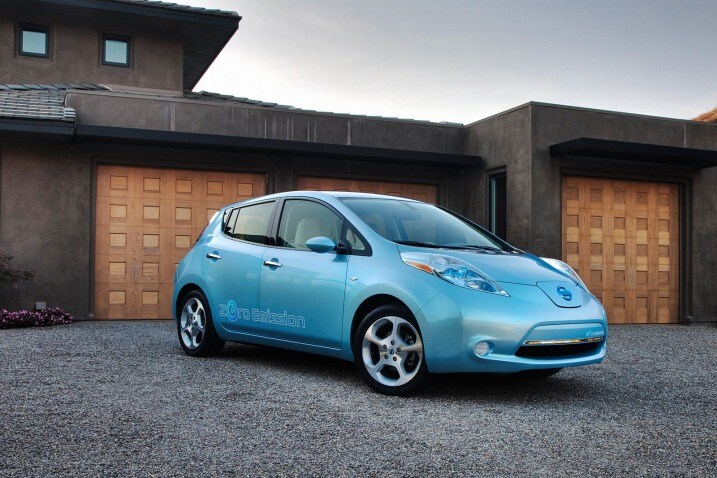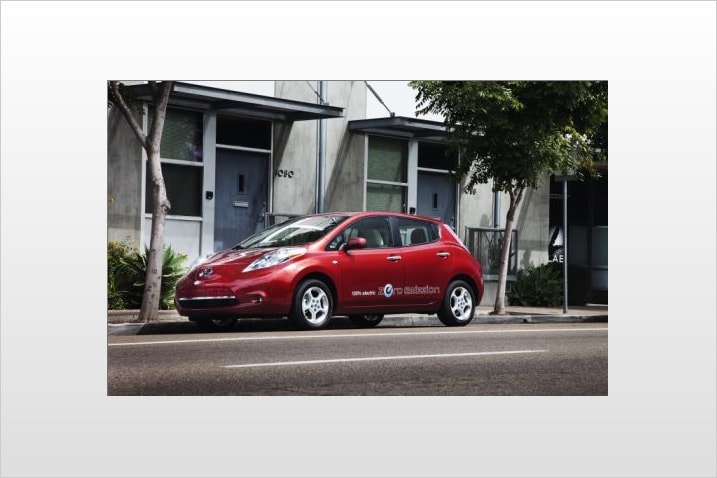"The vast majority of people who actually live with these cars will tell you they don't have range anxiety," he says.
Paul Scott, vice president and founder of Plug-In America, has been driving an electric Toyota RAV4 for eight years, and says it's never left him stranded. He agrees that range anxiety "is only for people who haven't experienced electric cars." They read about the vehicle's range and think, "That's too short," he says. "But part of that comes from the fact that no chargers have been installed yet."
In the next year, hundreds of charging stations will appear in various locations such as grocery store parking lots. Even faster chargers are planned for various U.S. markets, and some of those units can fully recharge a car battery in only 20 minutes. So in the time it takes for an EV owner to munch a burger, the car can be recharged. That's exactly the scenario Leaf spokespeople describe during Nissan's cross-country Drive Electric tour, which is designed to explain the car's features, let people test-drive it and — in no small part — to assuage their fears about that 100-mile range.
Prospective electric-car buyers also will be able to test their range tolerance by renting a Leaf or a Coda. Enterprise Rent-a-Car plans to offer both these electric vehicles in its fleet beginning in 2011.
Range anxiety will definitely slow up some car buyers, said Chris Paine, who reignited enthusiasm about EVs with his 2006 documentary Who Killed the Electric Car? and is now at work on a sequel of sorts, Revenge of the Electric Car. "That's a big reason why GM decided to go with the range-extender idea on its Volt," he said in an e-mail. "But for people who really want to take gasoline off their shopping list, electric cars are it. For those days you need to go more than 100 miles there's your old gasoline car or Hertz."
Although Who Killed the Electric Car? described a conspiracy to sabotage EVs, Paine doesn't see any duplicity at work now. "I don't think range anxiety is any more of a plot by the oil industry than performance anxiety is a plot by the drug companies. Obviously they've both got something to gain by spreading fears, so you've just got to know who's writing the editorials and what their agenda is."
Some EV boosters agree with Paine, saying that the answer to range anxiety is simple: Since most households have two cars now, one can be electric for all the around-town trips while the gas car can be used for long hauls. Still, the idea of a limited range has negative connotations for Americans who have been mainlining gasoline throughout their lives and think nothing of 1,000-mile road trips.
Bigger batteries, longer ranges, smarter route-planning and faster charging stations are all possible cures for range anxiety. While some experts insist that it will always be present when gas fumes are absent, Paine sees it differently. "The cure is to let everyone finally be able to buy and drive electric cars," he said. "Then they can make the judgment for themselves. A lot of people will happily accept the trade-offs when they see the advantages."

